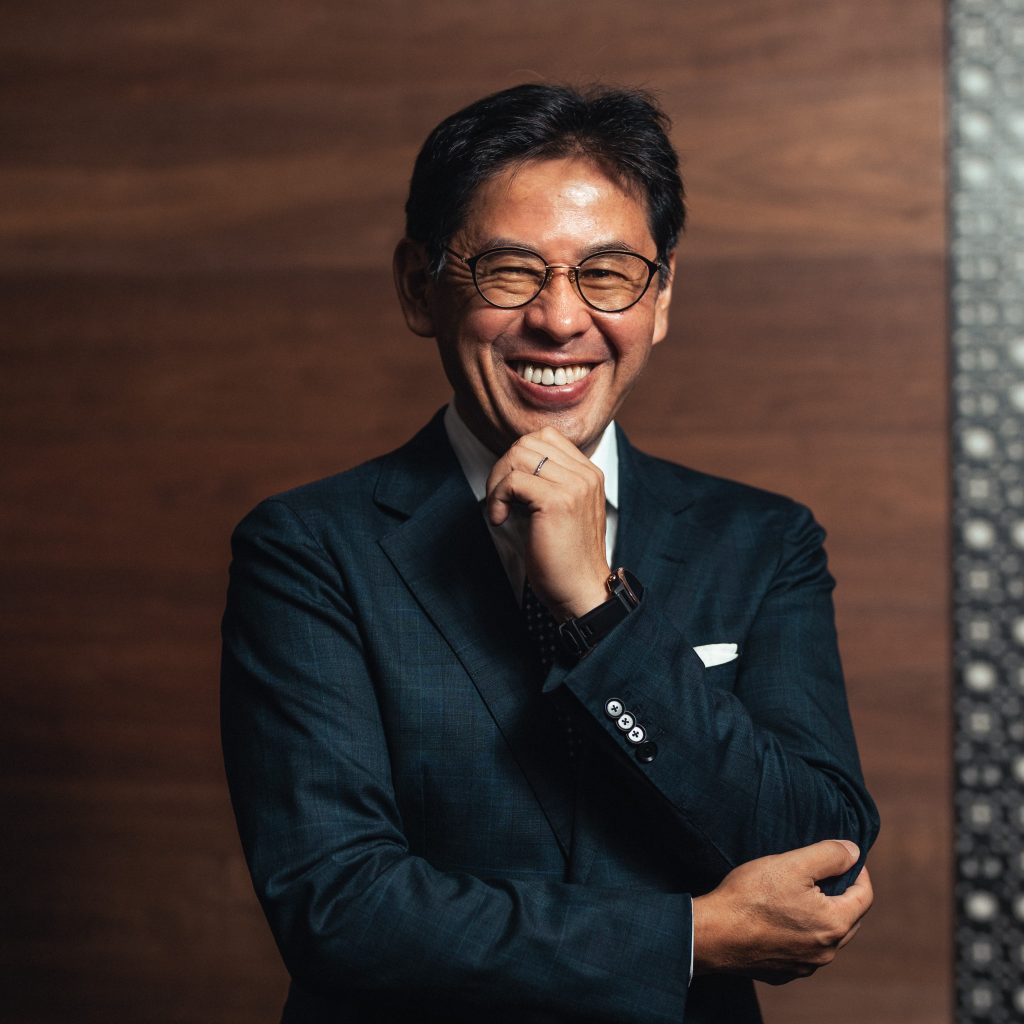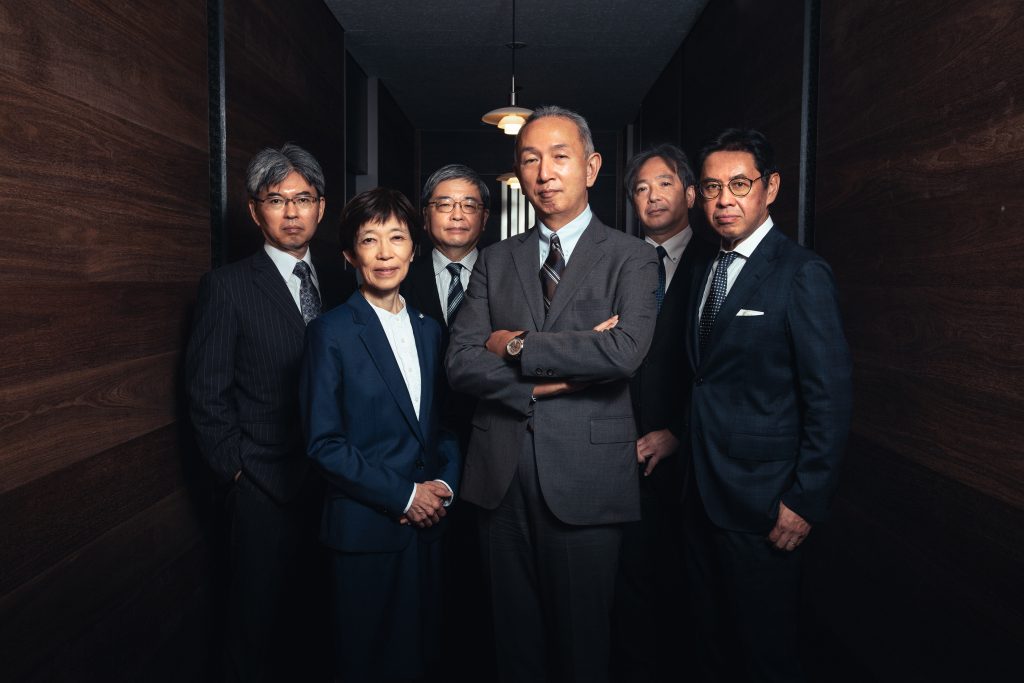Taking your first steps into the world at Sophia University: Three Admissions methods that allow applicants to show their strengths

Sophia University’s entrance examinations have undergone major revisions following the changes made to the standardized National Center Test for University Admissions system in 2021.
Sophia University’s Vice President for Admissions Affairs, who oversees the entrance examinations, talks about the new system’s characteristics, which allows students to choose an examination method fit for their individual strengths; the type of student that the University is seeking, and the backdrop that inspired these changes.
Utilizing three general admissions methods to admit a diverse range of students
While special entrance examinations emphasize academic ability, personality, experience, and a vision for post-admission, the emphasis of the general admissions method is basic academic ability. Our definition of basic academic ability does not refer only to an “amount” of knowledge.
Instead, for liberal arts, we believe the foundation of humanities and social sciences is in being able to express oneself in Japanese and English. For the sciences, we place importance on the ability to understand the subject matter and think and create original outputs, focusing on mathematical knowledge – the foundation of the natural sciences. The University’s general admission process has undergone a major transformation starting with the 2021 entrance examination to include three different admission methods.
Details can be found on the Sophia University Admissions website, where we stress the common denominator of our admissions philosophy to ensure diversity on our campus by accepting a wide variety of students.
In the TEAP Score-Based Method, applicants are selected for admission based on results of TEAP or TEAP CBT tests taken in advance of applying and Subject Specific Entrance Exams offered by Sophia University, to identify students with English and basic academic proficiency in all four defined skill areas. The most distinctive feature of this system is that the University does not administer its own English test on the day of the entrance examination; instead, the submitted TEAP score is directly converted into a score used to determine whether the applicant passes or fails the examination.
Since the TEAP score is directly reflected in the overall score, the higher the applicant’s ability in all four defined English skills, the closer they will be to passing the exam. There are three opportunities each year to take the TEAP and TEAP CBT, offering students the chance to demonstrate their English abilities without the pressure of a single testing opportunity.
In addition, since the entrance examinations are given on a standardized schedule, students can apply to more than one department at the same time. This is especially beneficial and less burdensome to students outside the Tokyo area who are planning to take multiple entrance examinations for universities in Tokyo.
The “Combined Undergraduate Examination and Common Test” method considers a combination of results from the Common Test for University Admissions offered by the National Center for University Entrance Examinations and Sophia University’s own subject-specific undergraduate departmental entrance exams to make a comprehensive pass/fail decision for addmission.
The Common Test for University Admissions, or ‘Common Test,’ is used to measure basic academic skills. The Common Test is required to be considered for admission to public universities in Japan, and many private universities have also adopted it as one of their entrance examination methods.
The undergraduate departmental examinations are used to test aptitude in various courses and to measure writing comprehension, logical thinking, and expressive ability. The reason for incorporating the results of the Common Test into the selection process lies in our desire to encourage students not only from the Tokyo metropolitan area, but from all over Japan to apply to Sophia University. The content of the unique undergraduate departmental examination is key to students’ interest in learning after admission – many of the questions test thinking, reading comprehension, and expressive ability, requiring a deep understanding of daily class material, rather than rote memorization.
The “Common Test Score-Based Method” solely utilizes results of the Common Test and is the equivalent of the conventional “National Center Test for University Admissions” system. This system provides ease for students living far from the Tokyo area who may face trouble accessing exams. In addition to the original four-subject type, a three-subject type has been newly established as part of the 2023 entrance examination to make it easier for applicants who wish to apply exclusively to private universities.
Scores from external examinations for foreign languages can be used for both “the Combined Undergraduate Examination and the Common Test” and “the Common Test” alone. The use and score conversion differs depending on the method of scoring used, but the core purpose remains that the University aims to reflect and evaluate your efforts during your high school years in the entrance examination. We would like to encourage those who have already taken a foreign language certification test to submit their scores and encourage those who haven’t to work hard towards such certification tests.
With a deep interest in the world at heart, we encourage everyone from all over Japan to jump into the world
In the two years since the new general admissions system was introduced, the English proficiency of new students has already steadily improved. The introduction of the Common Test for University Admissions has also made it possible for high school students to aim for Sophia University. However, we would like more students from local areas – for example, those who are eager to contribute to their hometowns after graduation – to choose Sophia.
Whether it is stimulating inbound demand or bringing innovation to industry, foreign exchange and cross-border perspectives are essential for Japan’s various regions to thrive in the future. Once immersed in a global environment, the appeal of Japan’s local areas becomes apparent from an “outside” view.
Sophia University has a campus in the heart of the global city of Tokyo, where you can meet students from all over the world and have abundant opportunities to interact with international organizations and global companies as well as universities and research institutions overseas. As a member of a network that extends to many countries and regions, you will be able to experience the world and gain a perspective valuable to revitalizing local areas in Japan.
Sophia University nurtures people who enjoy diversity, that is, people who can actively interact with those of different origins, languages, and cultures, and can boldly dive into environments that are different from their daily lives. We want high school students to be interested in and exposed to global trends during their high school years through classes, activities, club activities, and career studies. By being exposed to broader perspectives, students will realize that the world they see now is only a small part of the wider world and that the values they hold are only one of many.
We believe that students who can further develop their potential during their four years at Sophia University are those who, in addition to their basic academic ability, possess a strong sense of action and a high level of social interest, which cannot be measured by deviation scores. In order to attract such students to our University, we will continue to implement entrance examinations that measure potential after admission, rather than the levels at the time of high school graduation. We urge students to not be overly concerned or preoccupied with current abilities, but rather knock on our doors with a passion for the world and for its future.
